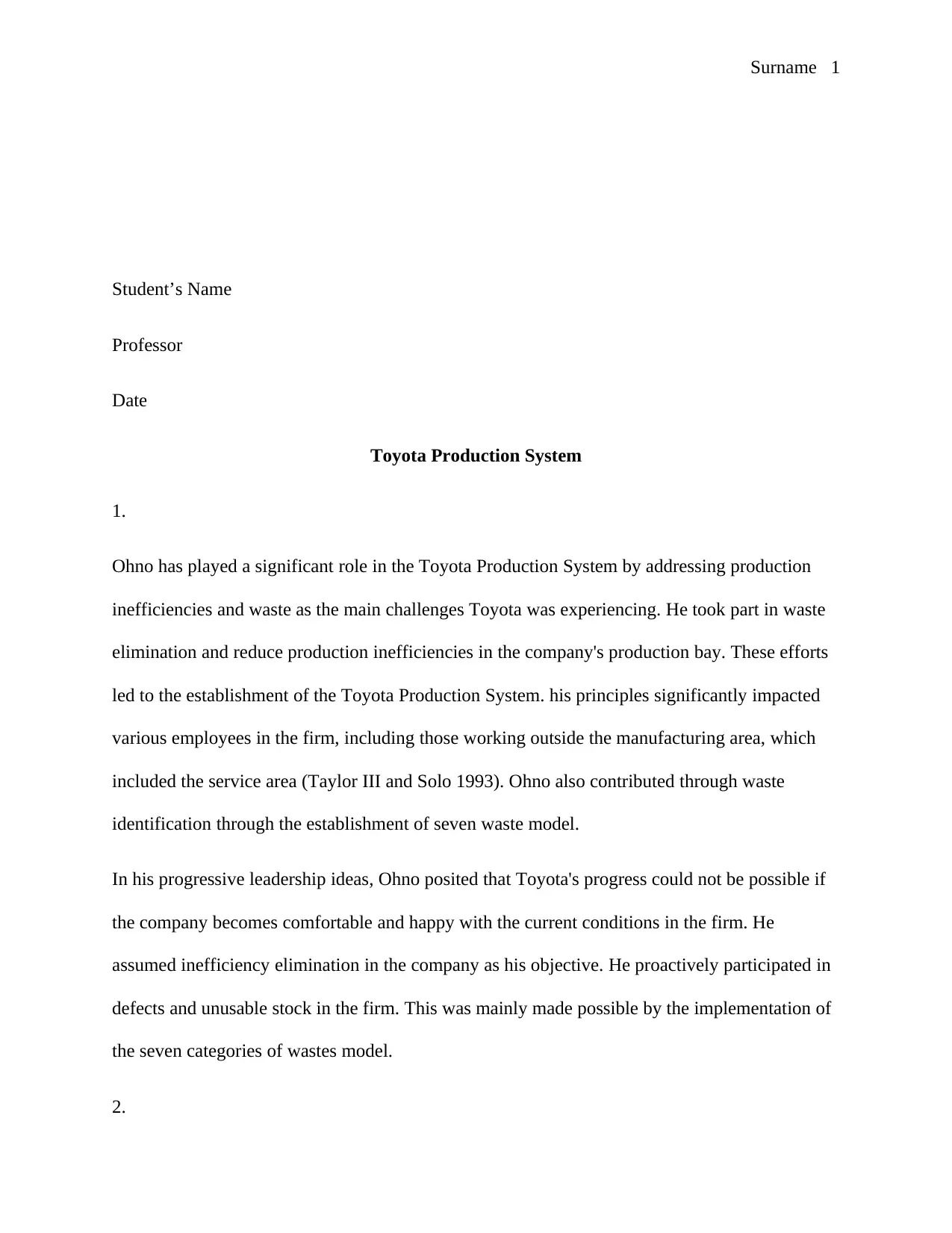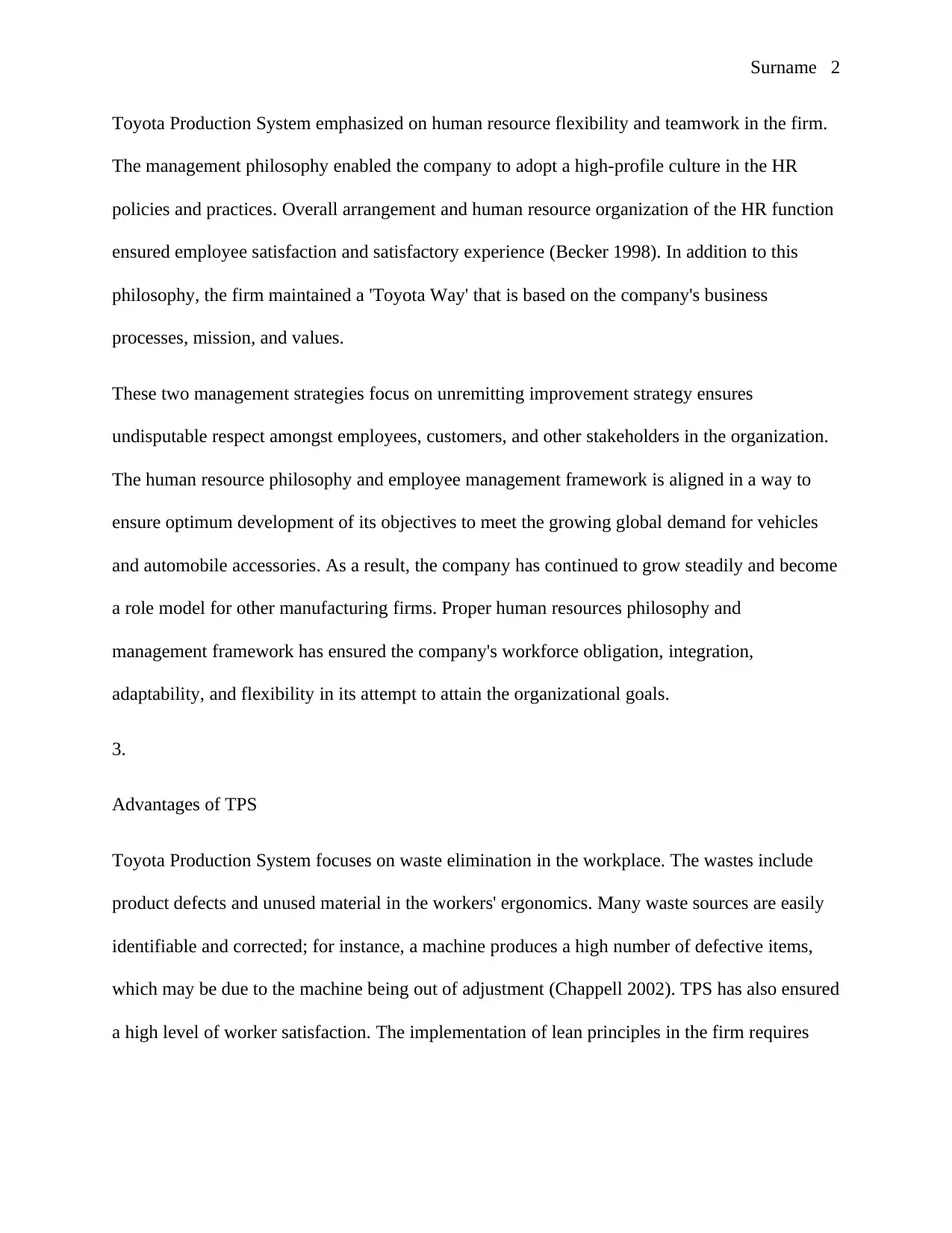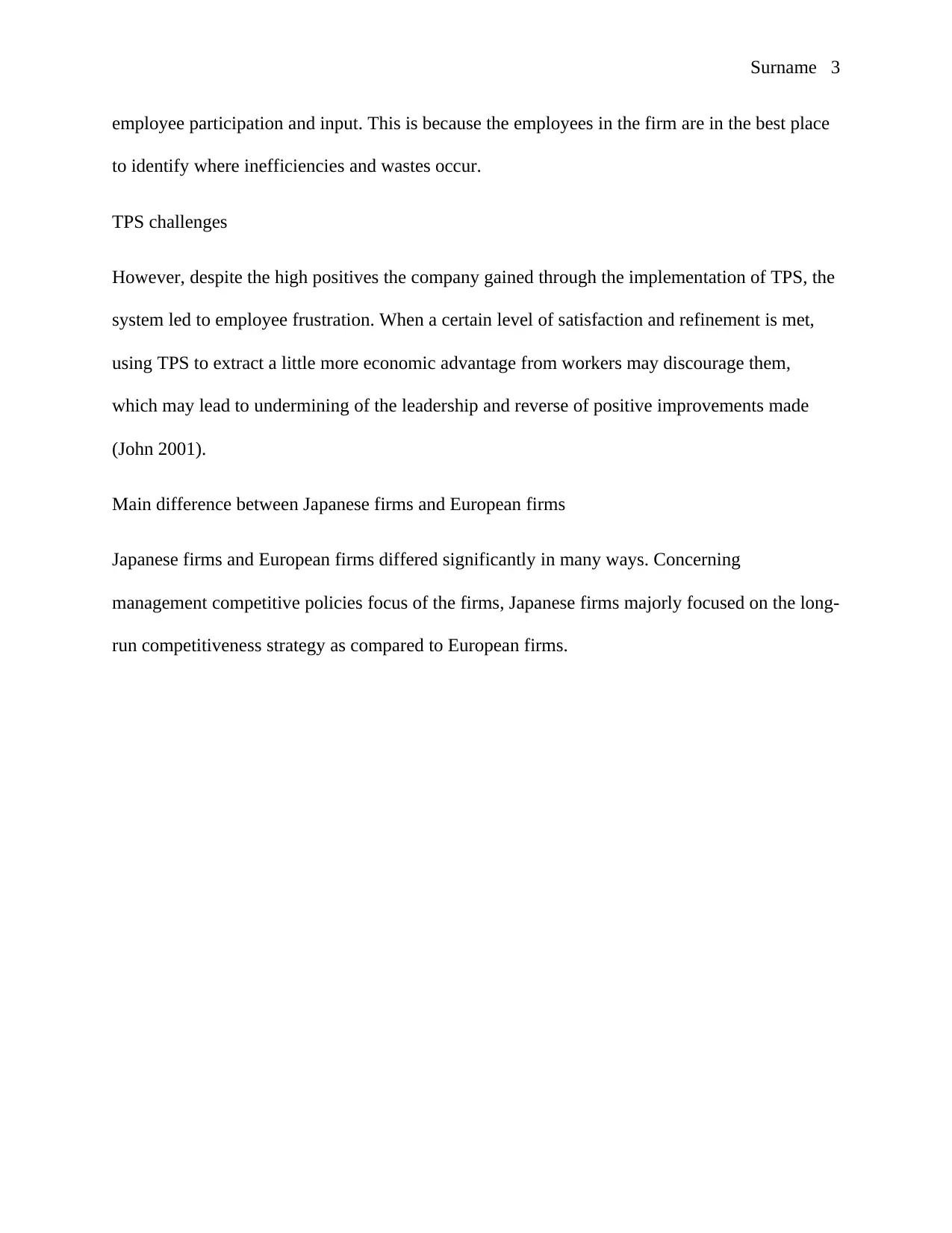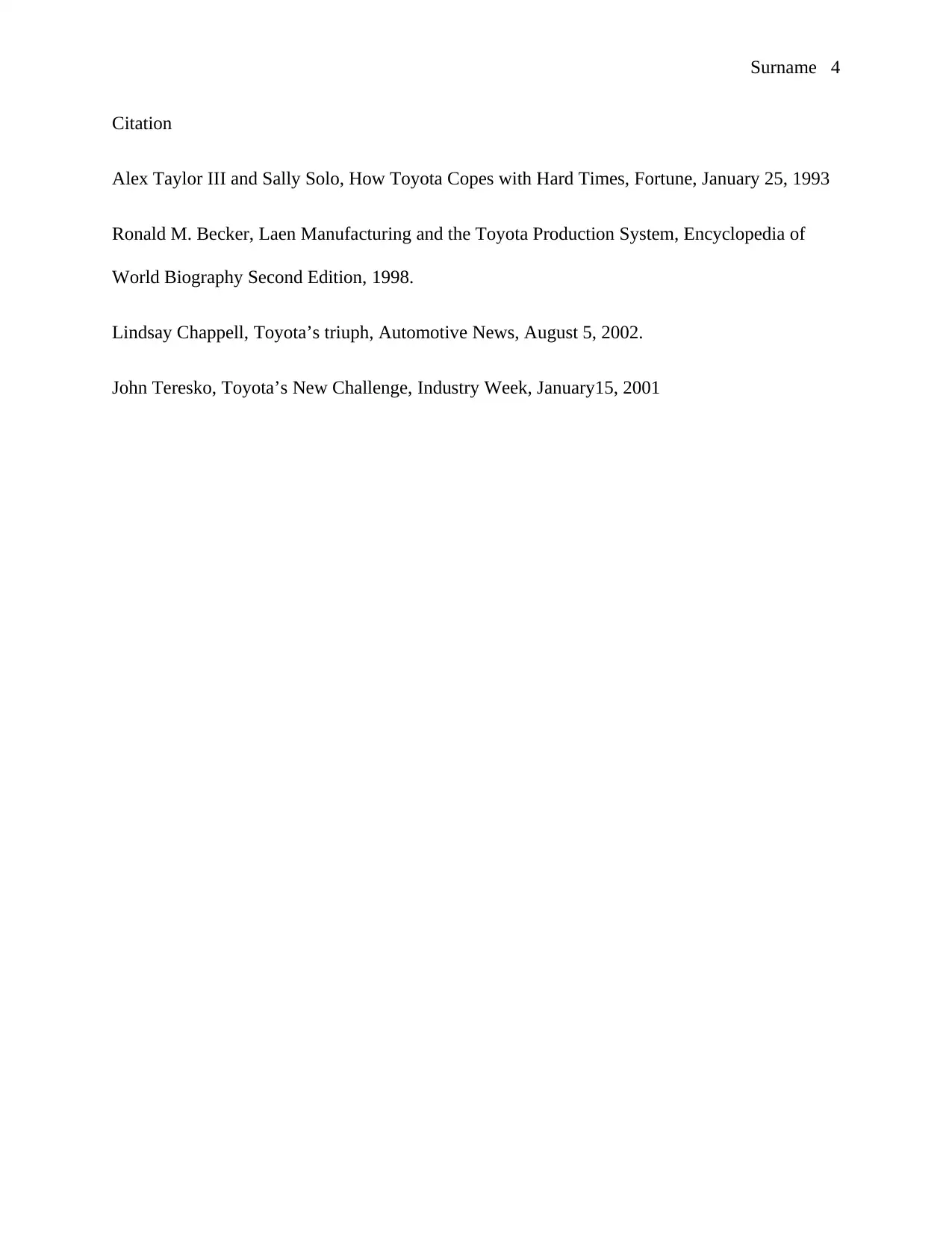Analysis of the Toyota Production System: A Detailed Report
VerifiedAdded on 2022/09/09
|4
|671
|19
Report
AI Summary
This report provides an in-depth analysis of the Toyota Production System (TPS), examining its core principles and impact on manufacturing efficiency. The report highlights the role of Ohno in developing the TPS to address production inefficiencies and waste, particularly emphasizing waste elimination and the establishment of the seven waste model. It discusses the importance of human resource flexibility, teamwork, and the 'Toyota Way' in achieving organizational goals. The report outlines the advantages of the TPS, such as waste reduction and increased worker satisfaction through lean principles. It also addresses the challenges, like potential employee frustration. Finally, it compares the management and competitive policies of Japanese and European firms. The report provides a comprehensive understanding of the TPS and its implications for modern manufacturing practices.
1 out of 4











![[object Object]](/_next/static/media/star-bottom.7253800d.svg)